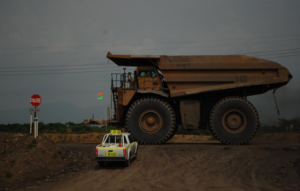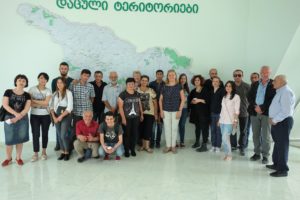Towards Energy Democracy in the Philippines
Transforming the Philippines’ Trade Union Movement into a Climate Justice Movement
One of the Philippines’ biggest trade union confederations, SENTRO, is mobilizing its members for climate change issues by linking the fight for workers’ rights with the struggle for an energy transition that is democratic, public, and just. The union has made great progress in two main areas: mobilizing workers and user members of electric cooperatives to fight privatization through large boycotts, and jeepney drivers to demand that the government takes responsibility to support drivers in transitioning to cleaner vehicles. They have won some partial successes. The union is now supporting urban community-based unions to advocate for solarized public housing to achieve clean energy access and reliability for impoverished households. By putting worker’s rights and the right to energy front and centre in the fight for a public and democratic energy transition that can deliver climate justice, SENTRO has demonstrated the power of a united worker front in climate justice issues.


